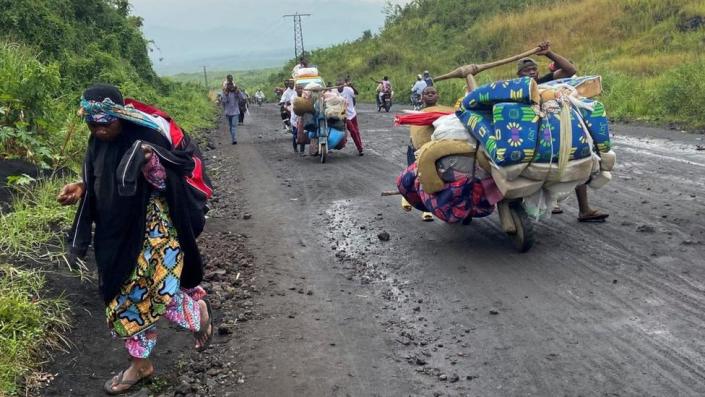
The government’s deal to deport asylum seekers to Rwanda risks “downgrading” British foreign policy, a former minister has said.
A final report by a UN panel of experts, released earlier this month, concluded that Rwandans support the M23 rebel group which is active in neighboring Democratic Republic of Congo (DRC) and is the subject of UN and US sanctions.
Justine Greening withdrew £21million in aid to the country in 2012 when she was international development secretary after the United Nations first reported that Rwandans were helping M23 rebels.
While the US and EU have directly called on the Rwandan government to end its support for M23, a British regional envoy issued a more general statement condemning “external” support for the rebels without naming Rwanda.
Rwanda has always denied supporting the rebellion.
Ms Greening told BBC Newsnight: ‘It is important that UK foreign policy and leadership in this country on important issues of human rights atrocities, including violence against women, are not downgraded because of our domestic political approaches.
“This UN report also highlights the practical complexity and sustainability issues of interlocking UK asylum policy with any third country, particularly a country facing wider regional stability challenges. and demonstrable,” she said.
The UN report, written for the Security Council, said advances by the M23 group had displaced a million citizens in Kivu province and that in the mineral-rich areas where it was active there had been “incidents of rape, including gang rapes by the M23”.
He also appointed Rwandan Defense Force generals and advisers to President Kagame to direct certain M23 activities. The Rwandan government said the report was “fabricated”.
On Thursday, the Court of Appeal ruled that the British government’s Rwandan policy was illegal.
Prime Minister Rishi Sunak has pledged to take the case to the UK Supreme Court.
The five-year trial – announced in April 2022 – would see some asylum seekers sent to Rwanda one-way, to seek asylum there.
They can get refugee status to stay in Rwanda. Otherwise, they can ask to settle there for other reasons or seek asylum in another “safe third country”.
The government says the plan will deter people arriving in the UK by “unlawful, dangerous or unnecessary methods”, such as on small boats crossing the English Channel.
A government spokesperson told the BBC: “Our groundbreaking partnership for migration and economic development will see those making dangerous and illegal journeys to the UK transferred to Rwanda, where they will be supported to build a new life. .
“Rwanda is a safe and secure country, with a proven track record of supporting asylum seekers.”

